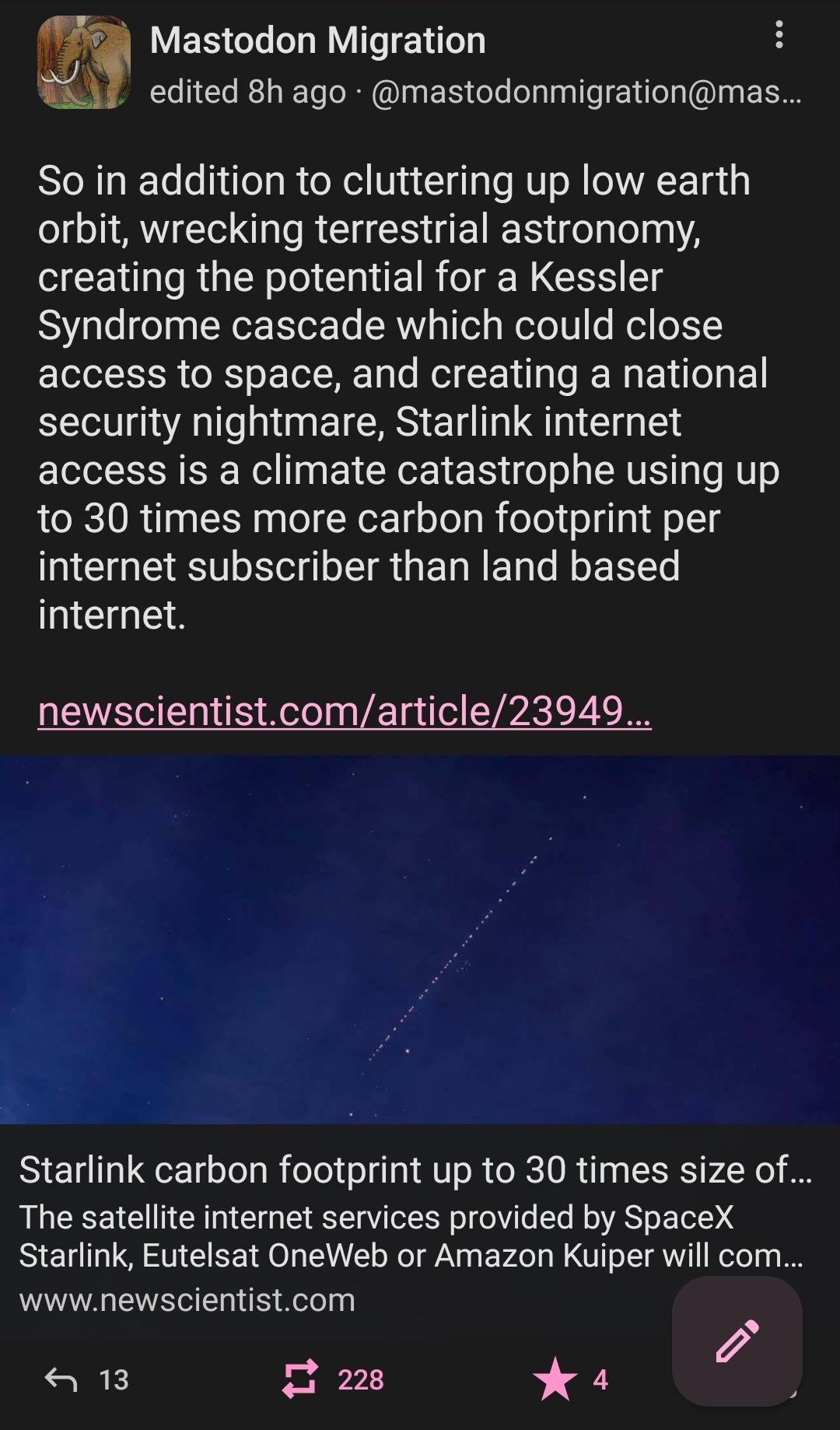I hate Elon maybe even more than the next guy, but there are some major exaggerations here:
Starlink makes tons of maneuvers to avoid collisions: https://www.space.com/starlink-satellite-conjunction-increase-threatens-space-sustainability
Starlink is at an orbit that they are quickly returning to Earth and burning up on re-entry: https://cybernews.com/news/starlink-lost-200-satellites/
